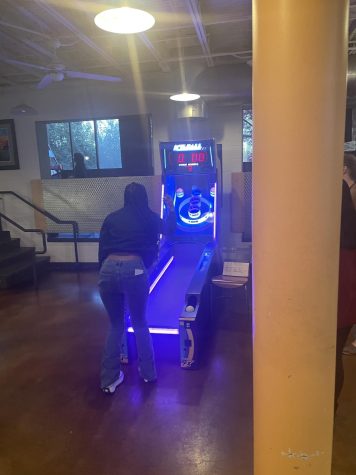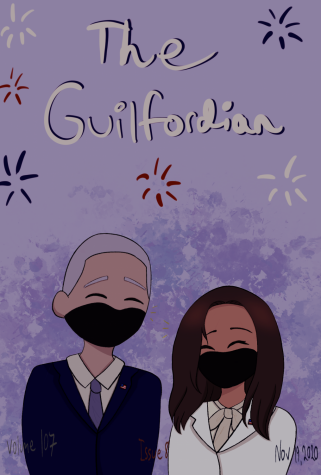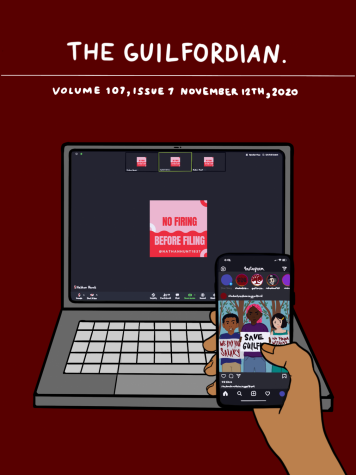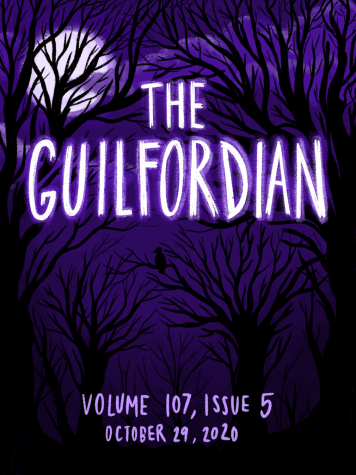All-student Edge meeting brings attention to issue of transparency
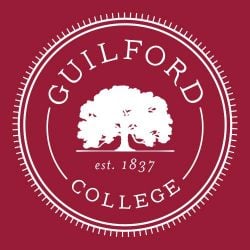
A mandatory all-student meeting regarding the Guilford Edge was held in Dana Auditorium on Wednesday, Oct. 3 to address student questions and concerns about the new academic curriculum being implemented. The session started with a discussion about the Edge system, followed up by a Q&A session with community members.
Before the Q&A session, members of the Curriculum Transition Committee and Guilford Student Body Association discussed the Edge system along with its purposes and goals.
“One of the things that is really affirming is that the Mellon Foundation gave Guilford a grant of $500,000 to advance the Guilford Edge Program,” said Political Science Professor Kyle Dell.
Guilford’s grant from The Andrew W. Mellon Foundation will “support the development of multidisciplinary teams delivering project-based, hands-on collaborative learning opportunities for all students in each of their undergraduate degree program,” according to an email from President Jane Fernandes sent to Guilford students.
During the meeting, the four pillars of the Guilford Edge were emphasized. These pillars, which include learning collaboratively, teaming for success, rallying campus spirit and incorporating ethical leadership, will drive the changes affecting students as well as the Guilford institution.
One of those student-geared changes with the pillars is the new Guided Discovery program. The program provides students with academic coaching and career exploration, along with other related services. While guides are only paired with first-years, all students are able to ask for help through walk-in and appointment sessions.
While academics are only one aspect of the Edge, it remains a concern for students who have expressed confusion over the impacts of the new curriculum, in terms of uncertainty with schedule changes and graduation dates.
The Edge’s academic schedule changes result from the new curriculum’s efforts to offer daily time for community interaction, an upgraded version of the community time Guilford offers now. This time for interaction would offer students opportunities for involvement when students do not have class, acting similarly to meeting times for clubs and other communal activities.
The details of the Edge are still in the workings, with aspects of the system subject to change. Nevertheless, faculty and staff are optimistic about what this means for the students.
“Not every single part of this is going to go really smoothly, but we hope to provide more opportunities that students want,” said Visiting Assistant Professor for Art Katie Collier.
The meeting sought to clear up confusion and clarify the motives behind the implementation of the Edge. Students expressed concerns over the Edge’s impact on billings as discussion over whether or not Guilford ideals were being used as a marketing strategy emerged. Many students brought attention to the issue of transparency.
Junior Jeremiah Hedrick, vice president of the GSBA, discussed student concerns over voicing questions and finding answers.
“I would like to open up the floor because some people are afraid to come talk to us or are just put in a place where they’re unavailable,” said Hedrick. “Honestly, the best outlet would be for them to come to our GSBA meetings, but like what someone said out there, we need other outlets.
This shouldn’t be the only outlet. A lot of communities don’t get along with other communities. We really need to open that up for everyone.”
While most of the student voices during the meeting’s Q&A session expressed concern, confusion and in some cases, frustration, not all students feel this way. Some students are adjusting to the new changes and look forward to what experiences they may have.
“I personally don’t have any concerns,” said first-year LeSeria Neven. “I got an email about it after I was accepted, and I was like, ‘oh, that looks like fun.’”
With all changes on track to be set into motion the next academic year, the Guilford Edge hopes to offer students the opportunity of varied experiences. Guilford community members hope the Edge meeting marks the beginnings of a step toward clearer communication about changes, as more decisions regarding the Edge are made as the next academic year approaches.






